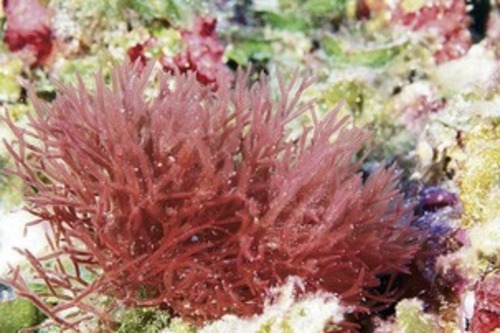Seafloor algae key to food web, new study finds

2012 September 28 - CTY - Unidentified red algae (probable new species) at 200 feet, Pearl and Hermes Atoll. Photo credit: Greg McFall/NOAA
A new study shows algae on the seafloor are important to the health of food webs and fish populations in the Northwestern Hawaiian Islands.
The study published earlier this month in the journal Marine Biology found bottom-dwelling algae are the base of the food web. Small fish eat the algae, while sharks and other large fish eat the smaller fish.
Papahanaumokuakea Marine National Monument Deputy Superintendent and report co-author Randall Kosaki says taking care of the reef will help ensure healthy fish populations.
He says dredging and the spread of non-native invasive algae will affect the abundance of fish prized by humans for food, like snapper or jacks.
The monument said in a news release Friday researchers collected nearly 600 algae and fish samples for the study.



